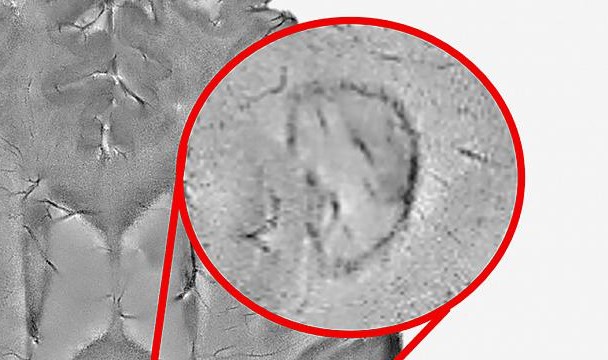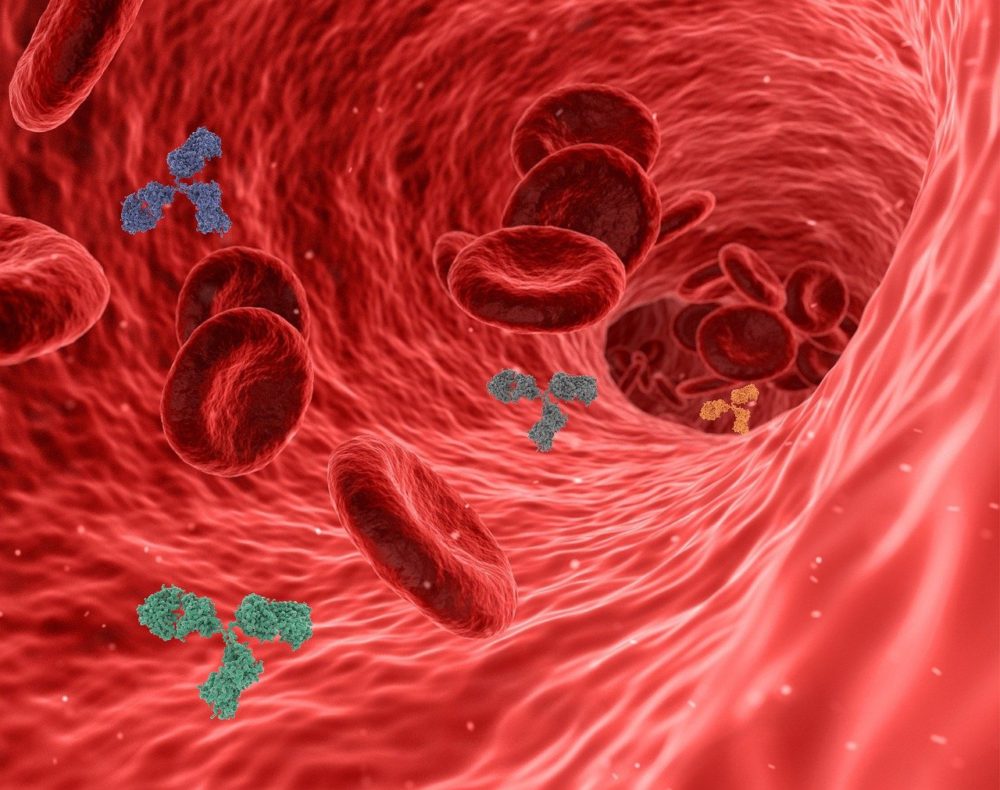The presence of chronic active lesions in the brain may provide a clue to how quickly multiple sclerosis symptoms will progress. Researchers at the U.S. National Institutes of Health (NIH) call these “smoldering lesions.” Their study, just published in JAMA Neurology, indicates that the more smoldering lesions you have when you’re diagnosed, the more likely it is that your MS will be aggressive.
These lesions, described as “dark rimmed spots,” are difficult to see. So the researchers used a super-strong MRI scanner to look for them. (You can see what one looks like in the image below).

Of the 192 people with MS in this study, 56 percent had at least one rimmed lesion, and 44 percent had only rimless lesions. Lesions were present in the brains of those receiving a disease-modifying therapy (DMT) and in those who were not being treated with a DMT.
The more smoldering lesions the faster MS may progress
According to an NIH news release, “patients who had four or more rimmed lesions were 1.6 times more likely to be diagnosed with progressive MS than those without rimmed lesions. Moreover, these patients developed motor and cognitive disabilities at a younger age than the patients who had no rimmed lesions.”
The researchers also reviewed MRI images taken over 10 years or longer for a small subset of the study group. They found that their rimless lesions generally shrank over the decade, but their lesions with rims either grew or remained the same size.
Attack these lesions quickly
According to Daniel S. Reich, PhD, a senior investigator at NIH’s National Institute of Neurological Disorders and Stroke: “Our results support the idea that chronic active lesions are very damaging to the brain. We need to attack these lesions as early as possible. The fact that these lesions are present in patients who are receiving anti-inflammatory drugs that quiet the body’s immune system also suggests that the field of MS research may want to focus on new treatments that target the brain’s unique immune system — especially a type of brain cell called microglia.” Microglia cells mediate immune responses in the central nervous system.
Reich says the NIH Clinical Center is looking for patients who want to participate in studies like this one. “We hope these results will help test the effectiveness of new therapies for this [aggressive] form of MS and reduce the suffering patients experience.”
(A version of this post first appeared as my column on the Multiple Sclerosis News Today website).



